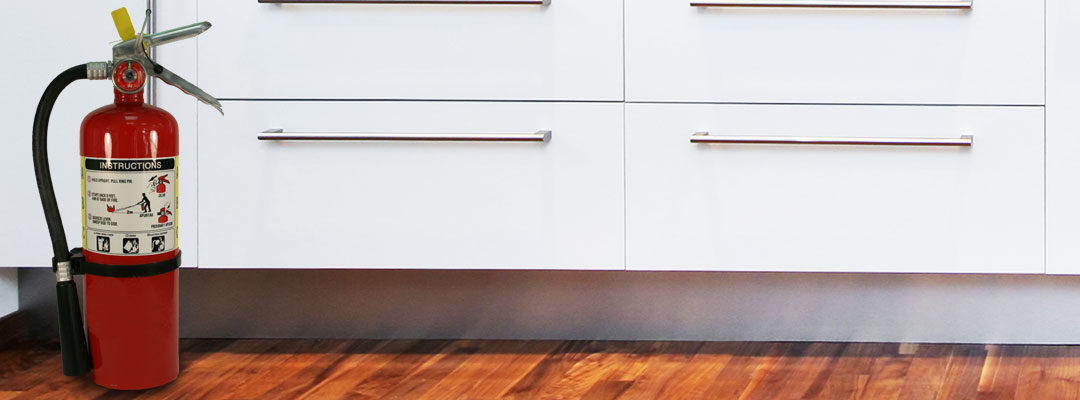According to the National Fire Prevention Association (NFPA), public fire departments in the U.S. responded to more than 1.2 million fires in 2013 that resulted in more than 3,200 fatalities, nearly 16,000 injuries and $11 billion in property damage and losses. Of these 1.2 million fires, 387,000 occurred in homes and accounted for nearly 85% of all fire related fatalities. While these statistics represent a significant decrease of 9.8 percent from 2012, and the fewest number of reported fires since the late 70s, there is still more work to be done to continue this trend.
One initiative that supports this goal is National Fire Prevention Week, October 5 11, 2014. Sponsored by the NFPA, the focus is promoting fire safety, building awareness of common causes of fires, and educating the public on best practices for fire prevention. The program’s goal is to make sure every US citizen has the information necessary to be proactive, fireproof their homes, and ensure each and every smoke detector is properly placed and in good working condition.
<3>Erie Red Cross Home Fire Preparedness Campaign: SAFE
The Red Cross of Erie is launching its own home fire preparedness campaign this month Smoke Alarm and Fire Education (SAFE). The organization, which provides assistance during times of disaster, reports that it responded to more than 800 home fires in western Pennsylvania last year. The goal of the SAFE campaign is to address the common causes of residential fires in order to help families prevent and prepare for them, particularly those at highest risk, including young children, older adults, people in low-income communities and people with disabilities.
Key initiatives:
1. Smoke alarm installation. According to the Red Cross, nearly 5 million homes in the U.S. lack smoke alarms. Not surprisingly, three out of five deaths that occur from home fires happen in homes without working smoke alarms. Smoke alarms save lives. In fact, if installed and maintained properly, smoke alarms can more than double a person’s chance of surviving a fire.
2. Home fire safety education. Often times, individuals fail to take precautions that can prevent home fires. The goal is to educate people on cooking safety (the number one cause of house fires), proper use of heating equipment, and smoke alarm installation and maintenance. Additionally, the program will help educate families on developing a fire escape plan in the event that a fire does occur.
The Erie Red Cross local and its partners, which include fire departments, faith-based organizations, schools and neighborhood leaders will canvass neighborhoods each Saturday in October with important fire safety information, show families how to develop a fire escape plan, and provide residents with the information and resources to have smoke alarms installed in their homes, free of charge. Additionally, any individuals or families in Erie county who don’t currently have a smoke detector are welcome to call the Red Cross of Erie County to find out if they are eligible to receive one at no cost. The organization is looking for additional volunteers to help with door-to-door visits. Interested individuals should contact them at (814) 8330942.
Fire Safety Tips
The National Fire Protection Association provides a wide variety of safety tip sheets to help educate families on fire safety and prevention. Here are some of the most important tips available:
Smoke alarm safety tips:
- Install smoke alarms inside and outside of every bedroom and on every floor of your home, including the basement and attic.
- Place smoke alarms on ceilings and high walls only. Smoke alarms in the kitchen must be at least 10 feet away from the stove.
- Test smoke alarms monthly by pressing the button to make sure the alarm sounds.
- Replace all smoke alarms in your home every 10 years
Cooking safety tips:
- Do not leave the room when you are frying, grilling or broiling food, even for a short amount of time.
- If you’re simmering, baking, roasting or boiling, check food regularly and use a kitchen timer to remind you you’re cooking.
- Keep flammable materials away from the stove, including kitchen towels, rags, oven mitts, wooden utensils, and food packaging.
- Never throw water on a grease fire; use a lid to smother the fire and immediately turn off the stove-top.
Electrical safety tips:
- Never use extension cords to plug in major appliances such as refrigerators, dryers, washers, stoves, air conditioners, etc.
- Only plug one major appliance into an outlet at a time.
- Check electrical cords and ensure they do not run across doorways or under carpets.
- Use light bulbs with the recommended wattage for that particular lamp or fixture.
Education is key. Understanding what the most common hazards are and following fire safety and prevention tips is the best way to avoid a disaster like a house fire. If your family does experience a house fire, ServiceMaster Restoration by Advanced has the knowledge, experience and specialized skill necessary to repair and restore your home quickly. You can contact us any time of the day or night and our team will come to your home to assess the damage and develop a restoration plan.


Recent Comments